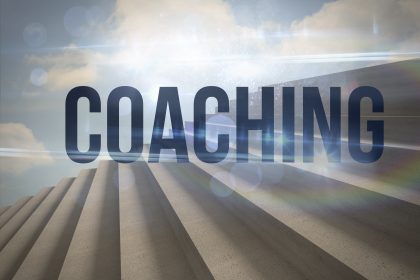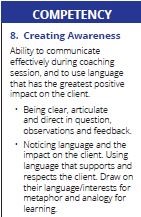
In this article, seven individuals, including a Founder and Tech Career Coach, share their personal experiences on the importance of a coach’s training or credentials. From the perspective that credentials foster trust and engagement to the belief in practical wisdom over formal training, these insights provide a diverse look at the value of formal training in coaching.
- Credentials Foster Trust and Engagement
- Value of Coaches’ Personal Experience
- Step in Conducting Due Diligence
- Training Demonstrates Professionalism
- Proven Knowledge Ensures Safety
- Structured Approach Boosts Confidence
- Practical Wisdom Over Formal Training
Credentials Foster Trust and Engagement
I have had various career-coaching sessions throughout my early career, and looking back, I think they actually inspired me to become a professional career coach and get qualified myself.
No matter the area of their expertise, trained and certified professionals should always be the advisors, as it is a relationship based on trust.
I have repeatedly found that clients are more likely to trust and respect a coach with recognized qualifications and credentials because these certifications validate the coach’s competence and expertise.
It’s like not wanting to trust a hairdresser to do a good job if they themselves have bad hair!
These qualifications provide clients with peace of mind, assuring them that the guidance they receive is based on a solid foundation of knowledge and professionalism.
Katharine Gallagher, Professional Growth Specialist of Education, Career, Recruitment, Productivity, Business, www.katharinegallagher.com
Value of Coaches’ Personal Experience
As a serial entrepreneur and certified holistic coach who has worked with many coaches, I value relevant qualifications and experience in any type of coach. However, what’s most important to me is that they walk the talk—that they have applied the principles themselves to transform their lives or businesses.
I don’t want advice from somebody who hasn’t put into practice what they preach. The best coaches I’ve learned from had more than book knowledge—they had lived experience overcoming real-world challenges. This enabled them to provide practical guidance based on their own journeys, not just theory.
For life, mindset, business, or any type of coaching, I look for proven expertise. Have they walked their talk? Do they have satisfied clients and powerful testimonials? I want to learn from people who have been in the arena, experienced their own transformations, and emerged wiser. Their experience is the true credential that can guide me to success.
Mona Kirstein, Ph.D., Digital Strategist, Holistic Coach, and Consultant, The Wholehearted Path
Step in Conducting Due Diligence
The coaching industry is currently unregulated, which means anyone can claim they are a coach, regardless of their background, training, education, or certification.
While it’s not necessary for your coach to have advanced training or hold a credential, it’s certainly helpful if they have invested the time and energy into one, especially given the rise of social media and “overnight” coaches.
Importantly, a credential by itself doesn’t mean the coach is qualified to coach you; it’s simply one step in conducting your due diligence.
Dr. Kyle Elliott, Founder and Tech Career Coach, CaffeinatedKyle.com
Training Demonstrates Professionalism
It is important to me that the trainer has training and/or a credential. This is a matter of professionalism and trust. If the person is trained or accredited, it shows that the trainer has put in the time and effort to gain expertise in their field.
Iana Varshavska, Digital Marketer and Yoga Therapist, Yanva
Proven Knowledge Ensures Safety
It’s imperative for a coach to have training and/or a credential in order to keep their clients as safe from injury as possible by imparting the latest, proper instruction that best meets their clients’ needs.
For example, after experiencing unsuccessful cookie-cutter coaching at a few national fitness center chains, our new primary care doctor directed my husband and me to a special program for weight loss and fitness at a local health center.
We met with a credentialed nutritionist/fitness instructor and were pleasantly surprised that she took our age and our physical limitations into account to customize a plan in which we could realistically reach our goals.
Her depth of knowledge gave us the confidence to trust in her, which motivated us to strive for the nutrition and fitness goals she created in collaboration with us.
Michelle Robbins, Licensed Insurance Agent, Clearsurance.com
Structured Approach Boosts Confidence
From my personal experience, having a coach with proper training or credentials is paramount. When I was younger, I sought guidance on a major decision and turned to a credentialed life coach.
Their structured approach, rooted in their formal training, provided clarity during a confusing time. It wasn’t just their wisdom, but the methodology they’d learned that made all the difference. It gave me confidence in their advice, knowing it was backed by a solid foundation.
Haya Subhan, General Manager, Solar Panel Installation
Practical Wisdom Over Formal Training
While credentials are certainly valuable, practical experience in the business world (or whichever field you’re seeking guidance for) carries its weight.
Something I realized early on is that when a coach has walked the talk and successfully managed their own business, they can offer real-world insights and advice that resonate with the challenges and opportunities entrepreneurs face.
I’ve benefited from coaches who have a proven track record of bootstrapping their businesses to success and that’s the path I chose for myself as well. This practical wisdom trumps formal training, as it directly addresses the genuine issues entrepreneurs encounter daily.
Ewen Finser, Founder, The Digital Merchant




